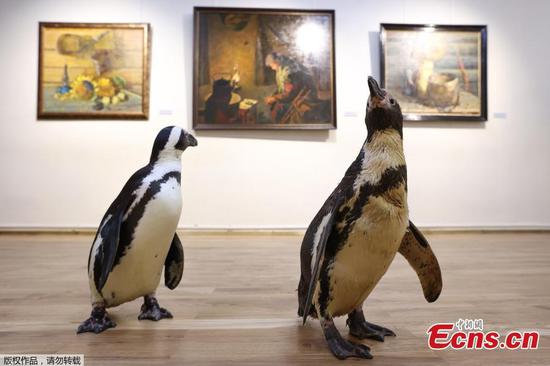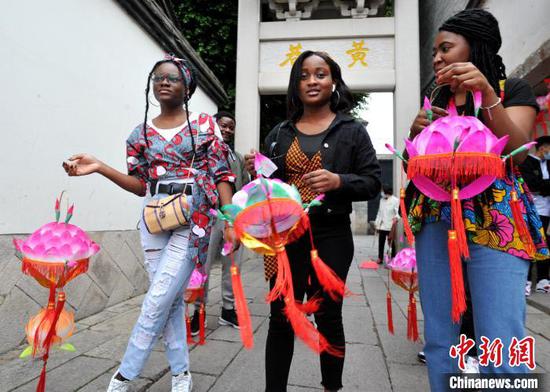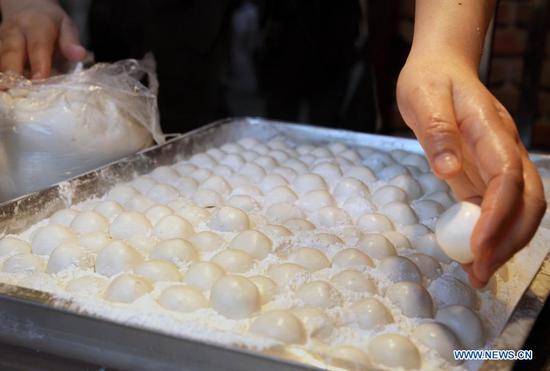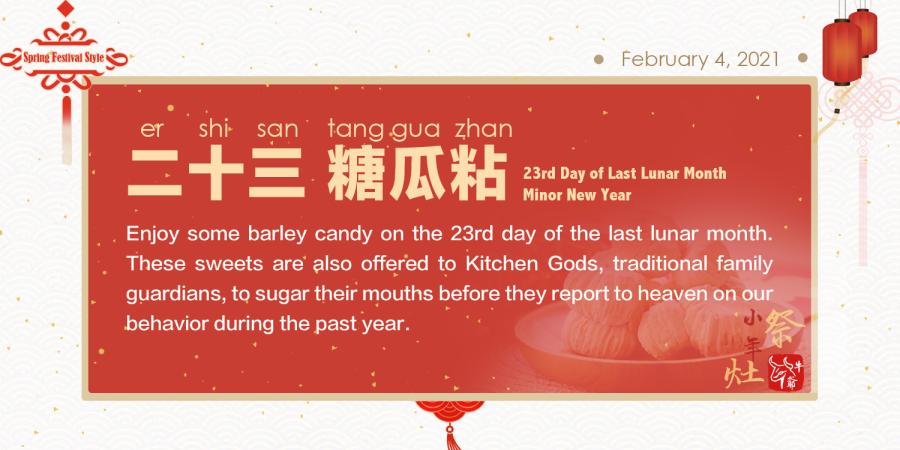
23rd Day of Last Lunar Month, Worship Kitchen God
Enjoy some barley candy on the 23rd day of the last lunar month. These sweets are also offered to Kitchen Gods, traditional family guardians, to sugar their mouths before they report to heaven on our behavior during the past year.
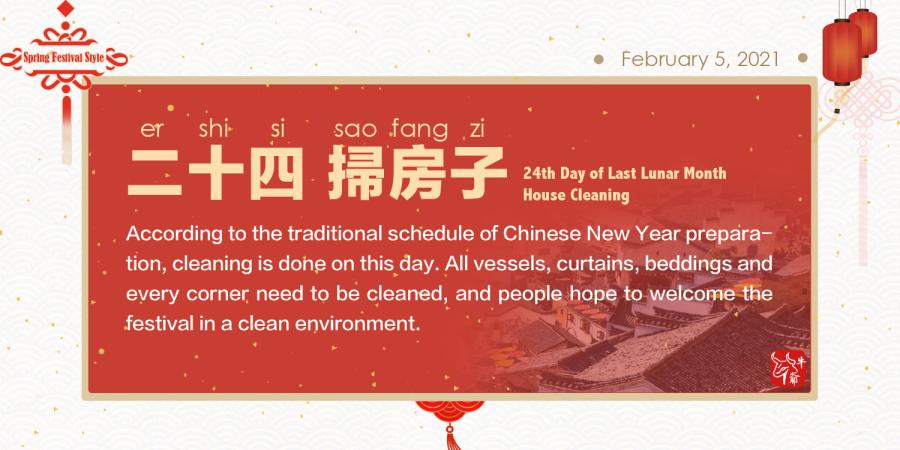
24th Day of Last Lunar Month, House Cleaning
According to the traditional schedule of Chinese New Year preparation, cleaning is done on this day. All vessels, curtains, beddings and every corner need to be cleaned, and people hope to welcome the festival in a clean environment.

25th Day of Last Lunar Month, Making Bean Curd
Tofu, or bean curd, is a food of Chinese origin and known throughout the world. Tofu sounds like the word for fortune and happiness in Chinese. As a result, making tofu equates to praying for a fortunate and wealthy life in the coming new year
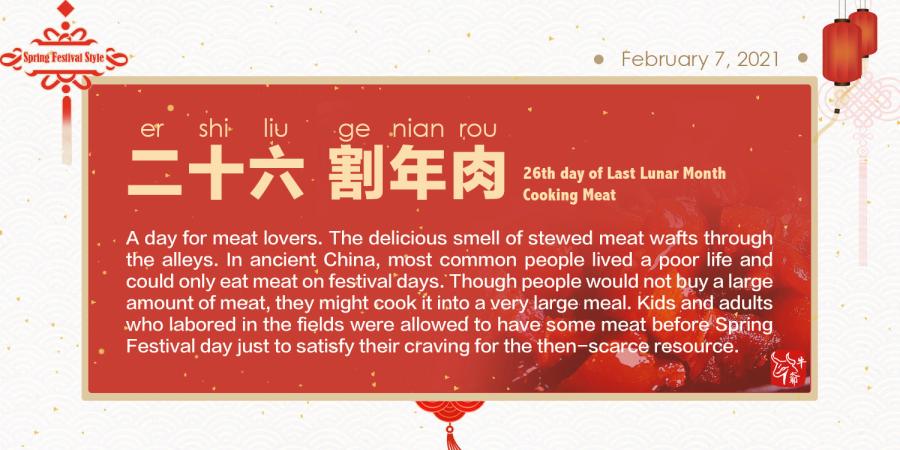
26th Day of Last Lunar Month, Cooking Meat
A day for meat lovers. The delicious smell of stewed meat wafts through the alleys.
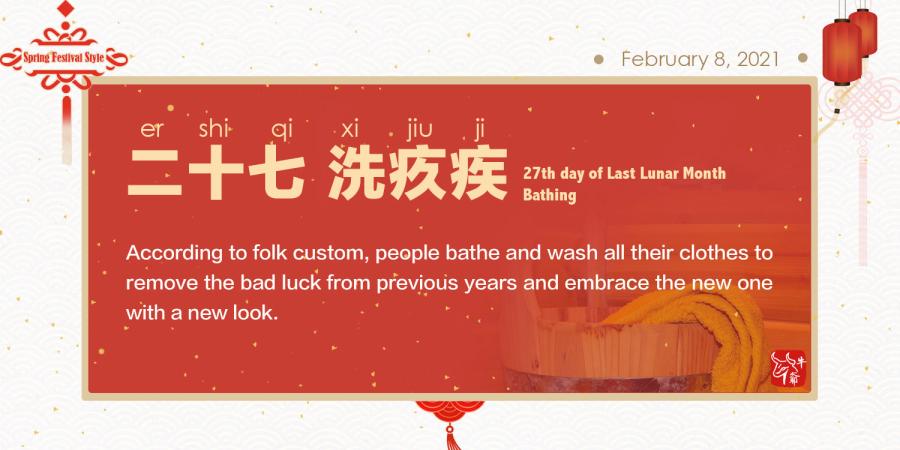
27th Day of Last Lunar Month, Bathing
Today marks the 27th day of last Lunar month, a day when people bathe and wash all their clothes to remove the bad luck from previous years and embrace the new year with a new look.
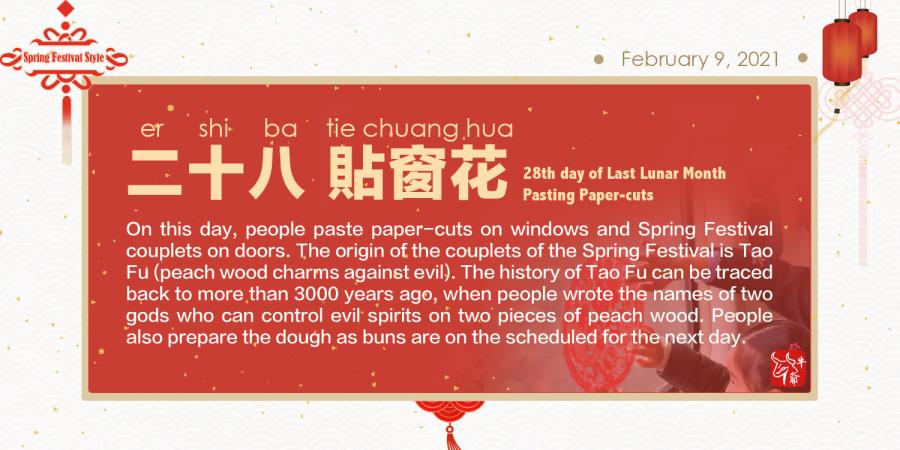
28th day of last lunar Month, Pasting Paper-cuts
People paste paper-cuts on windows and Spring Festival couplets on doors today, the 28th day of the 12th lunar month.
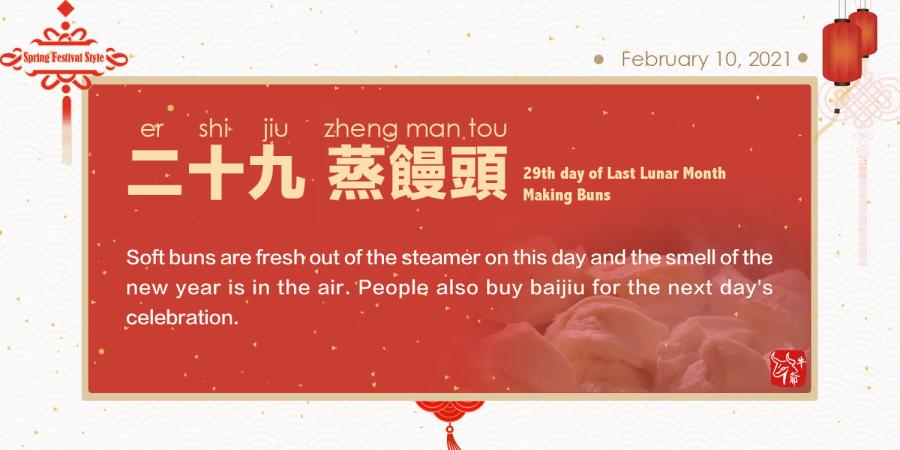
29th day of last lunar Month, Making Buns
Soft buns are fresh out of the steamer on this day and the smell of the new year is in the air.

Last Day of Last Lunar Month
On New Year's Eve, the biggest event is the annual family reunion dinner. In northern China, it is customary to make dumplings with family members to eat around midnight. In the south, however, people like to make nian gao (rice cake) and send some to relatives and friend as gifts. Another tradition is to stay up on New Year's Eve, known as shou sui, which is thought to add on to one's parents' longevity.
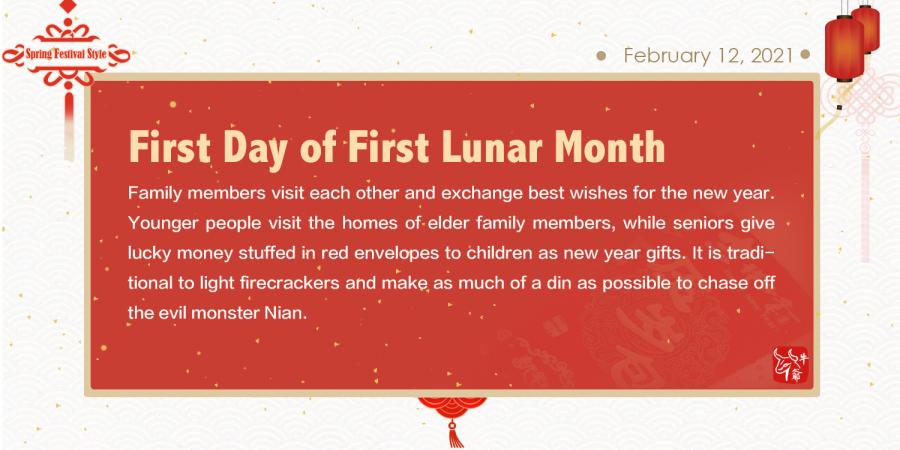
First Day of First Lunar Month
Family members visit each other and send best wishes for the new year. Younger people visit the homes of elder family members, and seniors give lucky money stuffed in red envelopes to children as new year gift. It is traditional to light firecrackers and make as much of a din as possible to chase off the evil monster nian.
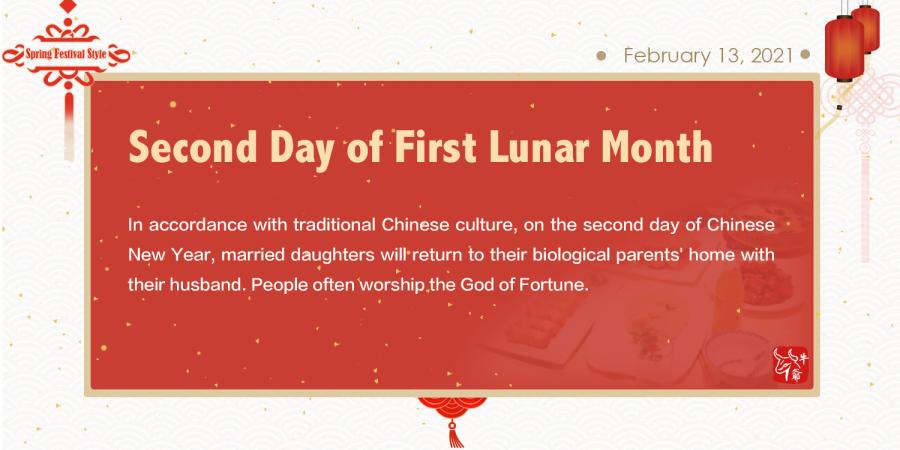
Second Day of First Lunar Month
In accordance with traditional Chinese culture, on the second day of the Chinese New Year, married daughters will go back to their biological parents' home with their husband. People often warship the God of Fortune.
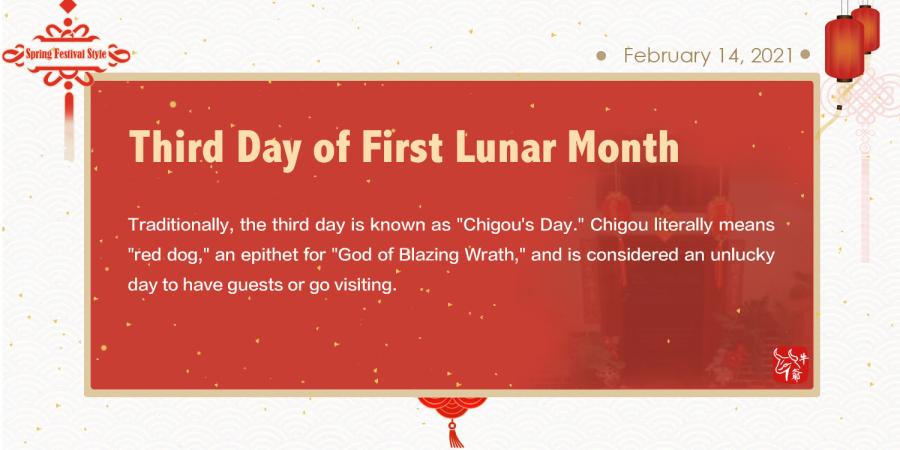
Third Day of First Lunar Month
Traditionally, the third day is known as "Chigou's Day." Chigou literally means "red dog", an epithet of "the God of Blazing Wrath", and it is considered an unlucky day to have guests or go visiting.
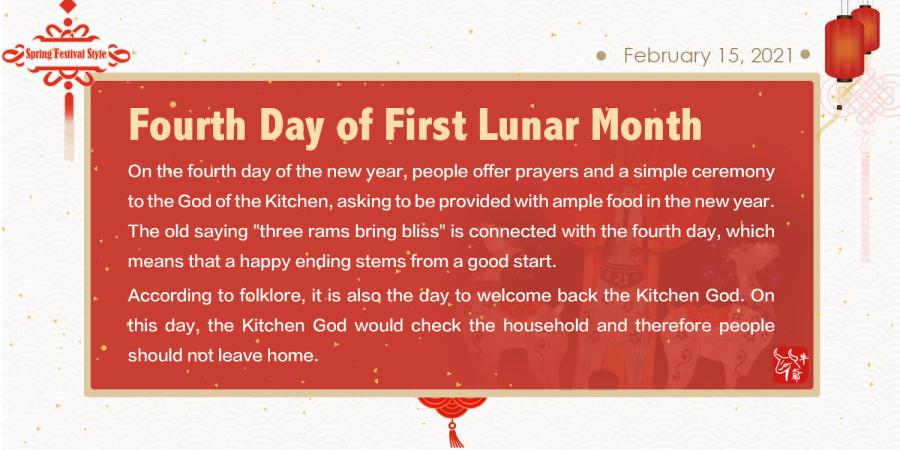
Fourth Day of First Lunar Month
On the fourth day of the new year, people offer prayers and a simple ceremony to the God of the Kitchen, asking to be provided with ample food in the new year. The old saying "three rams bring bliss" is connected with the fourth day, which says that by making a good beginning a happy end comes.
According to folklore, it is also the day to welcome back the Kitchen God. On this day, the Kitchen God would check the household and therefore people should not leave home.

Fifth Day of First Lunar Month
The fifth day is also the God of Fortune's birthday and people will celebrate this day with a large banquet. This day is also commonly known as the Festival of Po Wu, literally breaking five. According to custom, it is believed that many New Year taboos can be broken on this day.
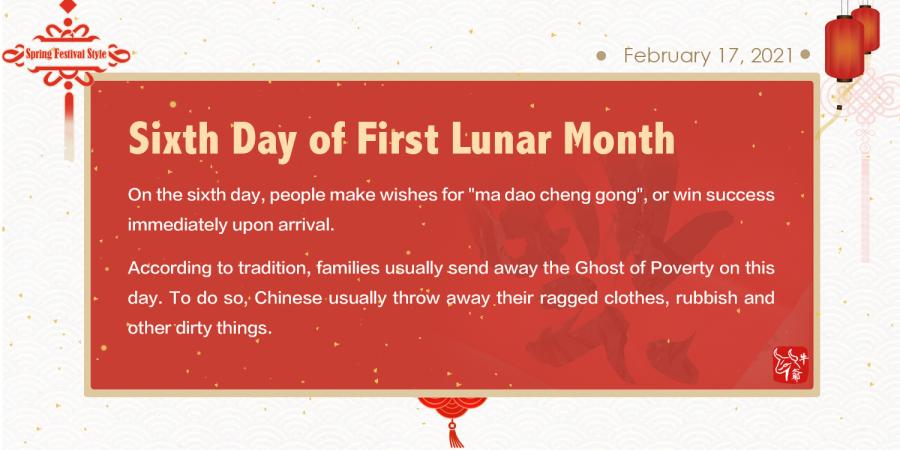
Sixth Day of First Lunar Month
On the sixth day, people make wishes for "ma dao cheng gong", win success immediately upon arrival.
According to tradition, families usually send away the Ghost of Poverty on this day. To send away him, Chinese people will usually throw away their ragged clothes, rubbish and other dirty things.
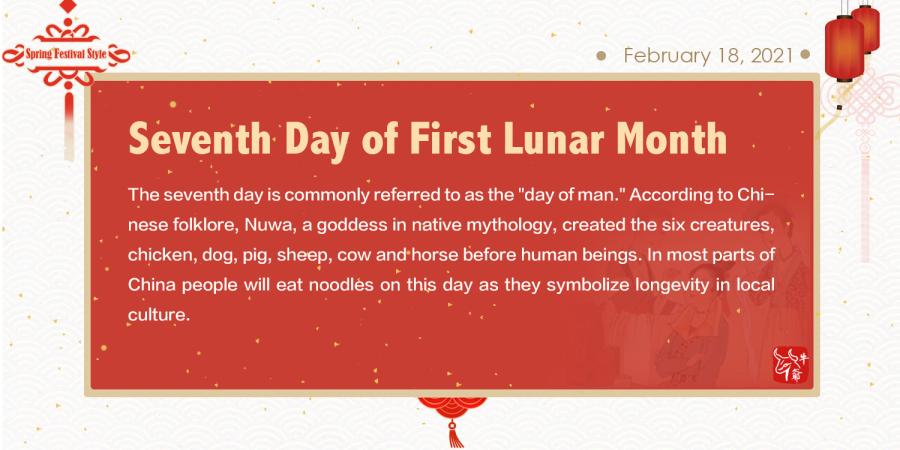
Seventh Day of First Lunar Month
The seventh day is commonly referred as the "day of man."According to Chinese folklore, Nu Wa, a goddess in Chinese mythology, created the six creatures, chicken, dog, pig, sheep, cow and horse before human beings. In most parts of China people will eat noodles on this day as they symbolize longevity in Chinese culture.
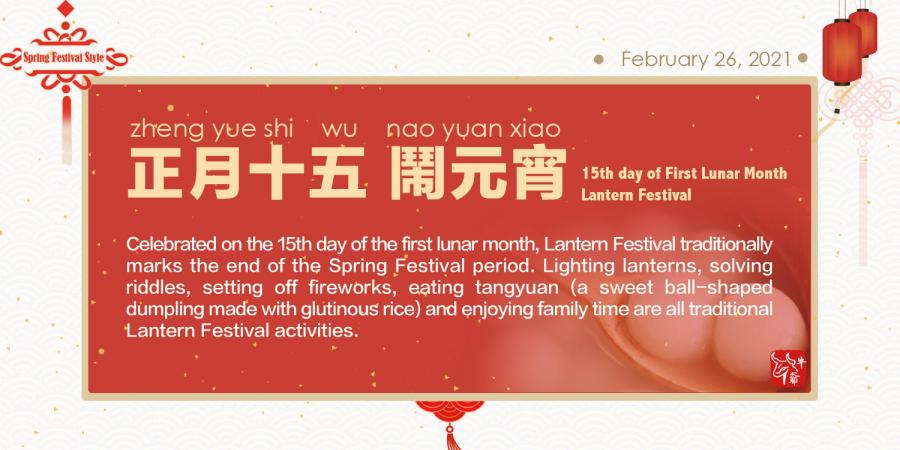
15th day of the first lunar month Lantern Festival Lighting lanterns, solving riddles, setting off fireworks, eating tangyuan and enjoying family time are all traditional activities on Lantern Festival.











